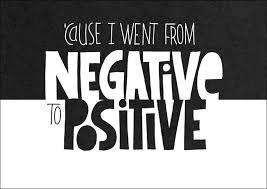 Many years ago, when delivering a talk to a group of business people on the subject of public speaking, right slap bang in the middle of it, the fire alarm went off. We were immediately evacuated and had to stand outside for 5 or 10 minutes. Although it was July, there was a particularly chilly wind, so not the most pleasant of experiences.
Many years ago, when delivering a talk to a group of business people on the subject of public speaking, right slap bang in the middle of it, the fire alarm went off. We were immediately evacuated and had to stand outside for 5 or 10 minutes. Although it was July, there was a particularly chilly wind, so not the most pleasant of experiences.
On our way back in, someone from outside the group said to me, “you’ll never get everyone back into the room” (mine was the session just before lunch. Beware – negative people lurk everywhere!) However, that was like a red rag to a bull to me. I remember thinking “oh yes I will and what’s more I’ll use the fire alarm going off as a point of learning.”
And that’s exactly what I did. First of all, everyone did come back in. I then made a quip about the alarm having woken everyone up, which got them laughing. They agreed that we could make up the lost time and work into the lunchbreak. Finally, I used the fire alarm going off as an example of how to handle an unexpected situation when speaking in public – there’s even a term for this – it’s called utilisation. This means that you use whatever’s happening and turn it to your advantage. You’ll see comedians do this all the time.
So what could easily have been perceived as negative turned into an extremely positive situation for me as it showed me how confident I was in handling such situations with competence and ease. The cherry on the cake was that 7 years later, one of the attendees at that event contacted me and asked me to coach him. Perhaps my handling of the alarm going off had contributed to the memorability of my talk.
So the question is, how can you apply this to situations which may arise in your life. Use the following 3 step process:
- Decide that no matter what happens, you will always look for the positive in every situation. This will take practice though since you (like most humans) probably have a tendency to judge everything as good or bad. However, things are rarely that straightforward. In fact, it’s probably true to say that in every positive, there’s a negative and in every negative, there’s a positive.
- When a ‘negative’ situation arises, ask the following questions: “what’s the positive in this?” and “what can I learn from this?” By asking such questions, you are consciously directing your mind and assisting your unconscious mind to come up with answers. If you persist, you will find them.
- Make this a habit. If necessary, stick post-its around to remind you to do this.
You can also utilise this process when challenges arise around charging what you’re worth.
You might be thinking, is that it? That’s really simple. The answer is yes – things are simple, though creating the habit of doing this will take time. Positive or negative – it’s your choice!
In my next article, I shall be talking about consciously creating beneficial habits.
And, as always, if you know someone who might benefit from this article, please do share it with them – they won’t be mad at you for providing them with value. Promise!

Leave a Reply